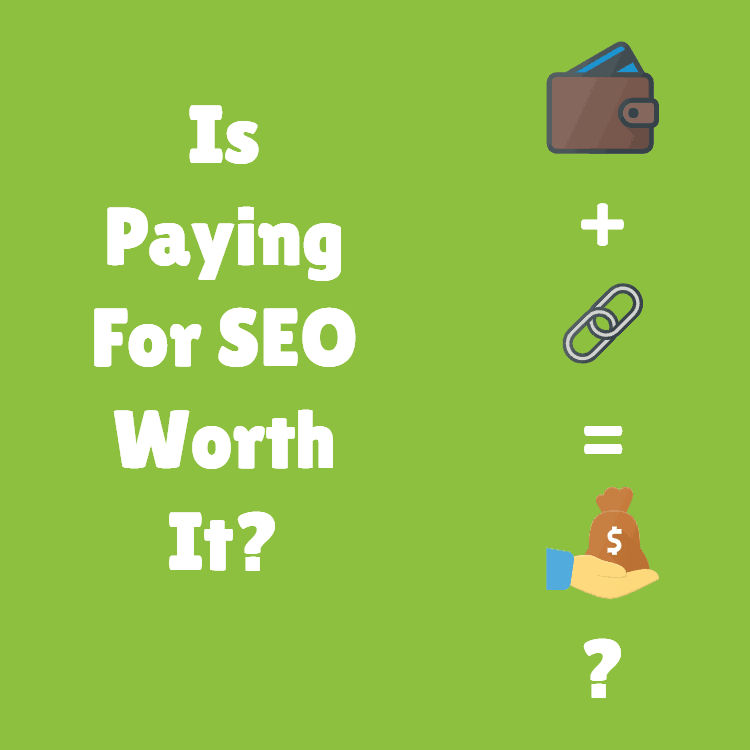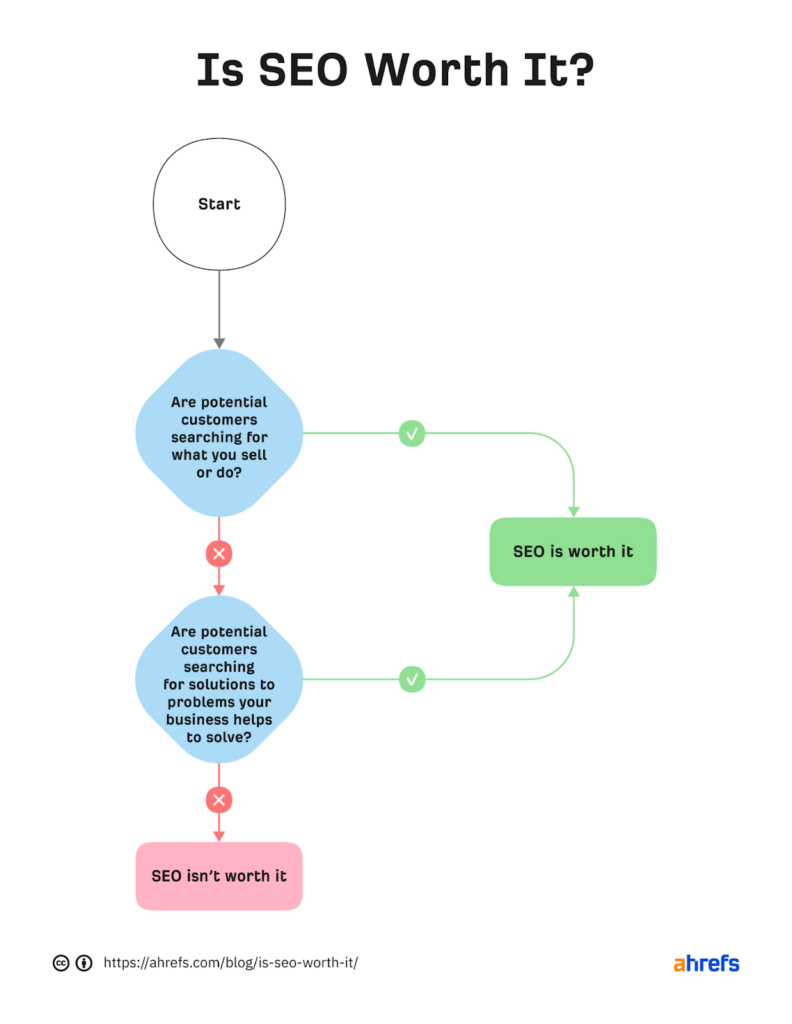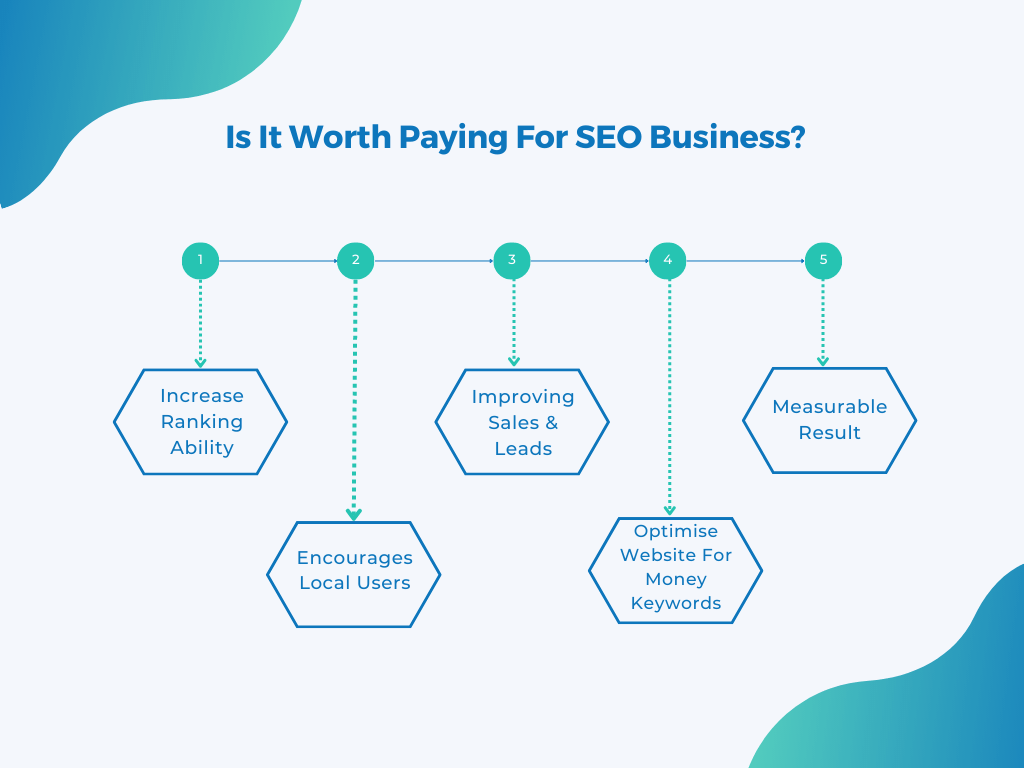Is paying for SEO worth it? In this article, I will delve into the topic and provide you with the information you need to make an informed decision. You will learn about the cost factors of SEO, the benefits it can bring to your business, potential risks to be aware of, and whether to choose professional SEO services or DIY. Additionally, we will discuss how to measure the return on investment and explore alternative marketing avenues. By the end of this article, you will have a better understanding of whether paying for SEO is worth it for your business.

Understanding SEO
SEO, or Search Engine Optimization, is the practice of optimizing websites to improve their rankings on search engine result pages. While the primary goal of SEO is to achieve higher rankings, it goes beyond that. SEO is about meeting user needs and ensuring that websites provide relevant and valuable content to their target audience. Without SEO, a website can be compared to a hidden gem in a vast digital marketplace, going unnoticed by potential visitors and customers.
The Cost Factor
When it comes to SEO, the costs can vary significantly depending on various factors. Some of the factors that can influence SEO costs include the scope of the project, the geographical focus of the SEO efforts, and the reputation and rates of the agency or professional providing the SEO services.
The scope of the project is an essential consideration in determining the cost of SEO. SEO efforts for a simple blog might require less investment compared to optimizing an e-commerce site with numerous product pages. Similarly, if the SEO efforts are focused on a local market, the costs might be lower compared to targeting a global audience.
The reputation and rates of the SEO agency or professional can also impact the cost. Established agencies often have higher rates as they have extensive experience and a proven track record of delivering results. However, it’s important to remember that the cost of SEO should not be the sole determining factor. Instead, businesses should focus on the value that SEO can bring and weigh that against the cost.
On average, businesses might spend between $500 to $10,000 per month on SEO. It’s essential to keep in mind that the return on investment (ROI) of SEO can be significant, with businesses experiencing increased visibility, traffic, and conversions.

Benefits of SEO
There are several benefits to investing in SEO for your website:
Increased visibility in search results
SEO helps your website appear at the top of search engine result pages, making it more visible to users who are searching for relevant keywords or phrases. Increased visibility can lead to higher organic traffic to your site.
Driving organic traffic to websites
SEO strategies are designed to attract organic traffic, meaning visitors who find your website through a search engine rather than through paid advertisements. Organic traffic tends to be more valuable as it consists of users actively searching for information or products related to your business.
Higher conversion rates
SEO not only drives traffic to your website but also targets the right audience. By optimizing your site for specific keywords, you attract users who are more likely to convert into customers. This targeted approach can result in higher conversion rates and increased sales or leads.
Enhanced brand trust and authority
Ranking high on search engine result pages instills trust and authority in your brand. Users tend to perceive websites that appear at the top of search results as more credible and trustworthy. Investing in SEO can contribute to building a stronger brand reputation.
Potential Risks
While SEO offers numerous benefits, there are also potential risks involved:
Use of black hat techniques and penalties
Some SEO agencies or professionals may employ unethical or “black hat” techniques to achieve quick results. These techniques might violate search engine guidelines and can lead to penalties, including the removal of your website from search engine results altogether. It’s important to avoid such practices and choose reputable SEO providers who follow ethical strategies.
Importance of staying updated with algorithm changes
Search engines regularly update their algorithms to provide users with the most relevant and high-quality results. These algorithm changes can significantly impact search rankings. Staying updated with these changes is crucial to maintaining and improving your website’s visibility. Failure to adapt to algorithm updates can result in a drop in rankings and a decrease in organic traffic.

DIY vs. Professional SEO
While there are countless resources available for learning SEO, mastering it requires time, effort, and continuous learning. As a business owner, you need to consider whether investing your time in learning and implementing SEO strategies is the most efficient use of your resources.
Hiring professional SEO services can offer several advantages. Professionals bring expertise, experience, and a deep understanding of the latest SEO techniques and best practices. With their guidance, you can save time and effort that would be spent on trial and error. Additionally, professionals can provide strategic insights tailored to your specific business goals and target audience.
Measuring ROI
Measuring the return on investment (ROI) of SEO is crucial to determine its effectiveness and value for your business. Some key metrics to track include:
Tracking organic traffic
Organic traffic refers to the number of visitors who find your website through organic search results. By monitoring this metric, you can assess the effectiveness of your SEO efforts in driving traffic to your site.
Conversion rates
Tracking conversion rates allows you to measure the percentage of website visitors who take a desired action, such as making a purchase, filling out a form, or signing up for a newsletter. Higher conversion rates indicate that your SEO strategies are attracting the right audience and driving valuable actions.
To measure these metrics and gain deeper insights into your website’s performance, tools like Google Analytics can be utilized. These tools provide valuable data and analytics that help you make informed decisions and optimize your SEO strategies.

Success Stories
Several businesses have experienced significant success through SEO:
Company A: 150% increase in traffic and 50% sales boost
After implementing SEO strategies, Company A saw a remarkable 150% increase in website traffic within six months. This increase in visibility and traffic directly corresponded to a 50% boost in sales during the same period. SEO played a vital role in expanding their reach and attracting more customers.
Company B: Local bakery’s doubled foot traffic
A local bakery optimized their website for local search, targeting keywords related to their location and products. As a result, they experienced a doubling of foot traffic to their physical store. SEO helped them capture the attention of local customers searching for bakery products in their area.
Future of SEO
The future of SEO is shaped by emerging trends and advancements in technology. Some of the notable trends that are affecting SEO include:
Impact of emerging trends like voice search and AI
Voice search is becoming increasingly popular, thanks to virtual assistants like Siri, Alexa, and Google Assistant. Optimizing websites for voice search is now essential to remain competitive in the digital landscape. Additionally, AI-powered algorithms are continuously evolving, and SEO strategies need to adapt to these advancements to maintain visibility and relevance.
Staying informed about these emerging trends is crucial for businesses that want to stay ahead of the curve and ensure the efficacy of their SEO efforts.

Alternatives to SEO
While SEO is a powerful and effective strategy, it’s not the only option for businesses looking to improve their online presence and drive traffic to their websites. Some alternatives to consider include:
Marketing avenues on platforms like Facebook
Social media platforms like Facebook offer alternative marketing avenues for businesses to reach their target audience. Through targeted advertising and content promotion, businesses can increase their visibility, engagement, and conversions on these platforms.
Immediate visibility through Pay-Per-Click (PPC) advertising
Pay-Per-Click (PPC) advertising allows businesses to place advertisements on search engine result pages or other websites and pay only when a user clicks on their ad. PPC can provide immediate visibility and drive traffic to your website, making it a viable alternative to SEO for businesses looking for quick results.
FAQs
To address common questions about SEO, here are some frequently asked questions and their answers:
What is SEO and why is it important?
SEO stands for Search Engine Optimization, and it is crucial because it helps websites improve their visibility on search engine result pages. With higher rankings, websites can attract more organic traffic and increase their chances of reaching their target audience.
Understanding the cost of SEO
The cost of SEO can vary depending on factors such as the project scope, geographical focus, and the reputation of the agency or professional providing the services. On average, businesses might spend between $500 to $10,000 per month on SEO.
DIY vs. professional SEO
While it is possible to learn and implement SEO strategies yourself, professionals often achieve better and more efficient results. Professionals bring expertise and experience to the table, ensuring that your SEO efforts align with your business goals and deliver optimal results.
Alternatives to SEO
Social media marketing on platforms like Facebook and PPC advertising are alternatives to SEO. These strategies can offer immediate visibility and drive traffic to your website.
Measuring success through metrics
To measure the success of your SEO efforts, track key metrics such as organic traffic, conversion rates, and engagement. Tools like Google Analytics provide valuable insights that help you assess the effectiveness of your SEO strategies and make data-driven decisions.
Making the Decision
Before investing in SEO, it’s important to define your goals and determine what you hope to achieve. Are you looking for increased visibility, higher sales, or both? SEO is an investment that can yield significant returns, but it’s crucial to align your SEO strategies with your business needs and objectives.
While SEO costs money, it’s important to view it as an investment in the long-term success of your business. By improving your website’s visibility, driving organic traffic, and increasing conversions, SEO can provide a positive ROI and contribute to the growth and success of your business.
In conclusion, paying for SEO can be a worthwhile investment for businesses looking to improve their online presence and drive targeted traffic to their websites. SEO offers numerous benefits such as increased visibility, higher conversion rates, and enhanced brand trust. However, it’s essential to consider the potential risks, stay updated with algorithm changes, and make an informed decision about whether to pursue DIY SEO or hire professional services. Ultimately, the decision to invest in SEO should align with your business goals and objectives, aiming for long-term success in the digital marketplace.